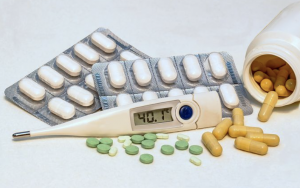What is dengue fever?
Dengue Fever is a mosquito-borne viral infection found in tropical and sub-tropical regions around the world. It is transmitted to humans primarily through the bites of infected female Aedes Aegypti mosquitoes.
The virus is not contagious and cannot be spread directly from person to person. There must be a person-to-mosquito-to-another-person pathway.
Symptoms of Dengue Fever

Symptoms appear within five to six days of being bitten, and last for one to two weeks. These symptoms include:
- Headaches (sometimes severe)
- High fever (around 40°C/104°F)
- Back aches
- Muscle and joint pains
- Nausea and/or vomiting
- Skin rash, muscle and joint pains
- Pain behind the eyes
- Diarrhoea
Diagnosis & Treatment
A blood test can determine if you have dengue — visit your doctor as soon as possible.
There is no specific treatment for dengue, but early detection and access to proper medical care are crucial to recovery.
Important: Do not use Aspirin, Motrin, Cataflam, Olfen or ibuprofin. These can cause bleeding which can lead to shock. Use Paracetamol or acetaminophen such as Panadol/Tylenol.
Prevention
- Prevent mosquitoes by covering all water-containing containers such as barrels, drums or buckets
- Use window screens, nets, coils and vaporisers
- Clear your drains
- Cut down overgrown bush
- Use insect repellant when going outdoors, particularly at dusk, which is the peak biting time for mosquitoes

